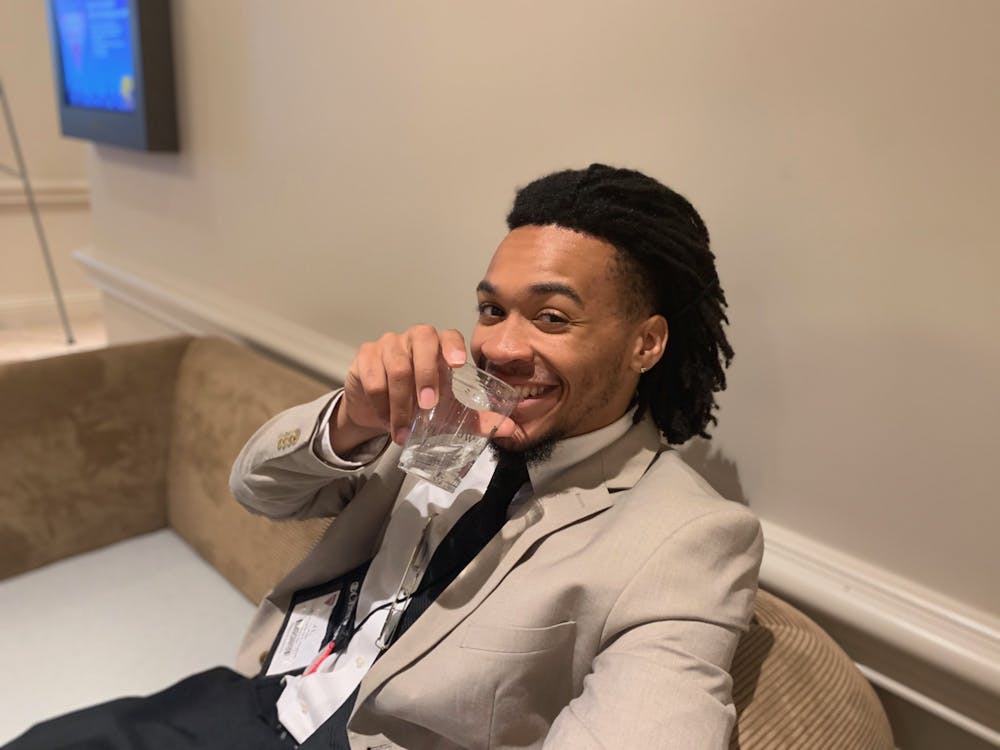When I was a little boy, I desperately wanted to play quarterback.
I loved everything about the position. You got to be in charge, say random colors and numbers at the line of scrimmage and of course throw touchdowns. I wore 18 because I adored Peyton Manning and I would often spend an afternoon throwing touchdowns to myself in front of thousands of imaginary fans in my Spiderman-themed bedroom.
But unfortunately for me, I never got to play quarterback.
In pee-wee football, quarterback is usually reserved for the coaches’ son, which was fine for me. My dad worked too much to coach, so I would never play quarterback. It stunk, but I could accept that. I was the only one that could.
My family believed my skin color was the reason why I’d never line up under center. Throughout their lives, Black quarterbacks were a rarity that faced more pressure than their white counterparts.
I remember my Grandpa telling me the story of Marlin Briscoe.
In 1968, Briscoe was drafted by the Denver Broncos. Briscoe played quarterback for a small school in Nebraska, but he had game. Yet despite setting 22 school records and leading his team to three conference titles, the Broncos tried to convert Briscoe to cornerback.
Later in his rookie season, Briscoe became the first Black starting quarterback in the AFL after Steve Tensi broke his collarbone. Briscoe led an 80-yard touchdown drive on his second series.
Briscoe was the best rookie quarterback in the league. The Broncos were bad, but their quarterback showed flashes of potential. His four touchdowns against the Bills is still a Broncos record.
But the next season, he was replaced and released. Briscoe found a home in Buffalo only as a receiver and never played quarterback again. I’m sure reigning NFL MVP Lamar Jackson could relate to that story.
It’s tough for a kindergartner to understand racism or stereotypes. Warren Moon, who retired with several NFL passing records, had to win five consecutive Grey Cups in Canada before ever getting his shot in the NFL. Today, Moon is the only man to be in the CFL and NFL Hall of Fame.
Still when Moon played, the Black quarterback carried the weight of stereotypes. Critics didn’t believe Black quarterbacks were as smart as white ones. They believed if you made the game too complicated their athleticism wouldn’t be enough. My dad taught me to believe I could do anything, but lessons about racist barriers can snuff out a young boy’s dreams before they develop.
Luckily for me, I got to see those barriers break.
In 2003, the NFL MVP was Steve McNair. In 2004, Michael Vick was on the cover of Madden. In 2005, Donovan McNabb led the Eagles to the Super Bowl. Those players were role models to me because they were Black men holding down and thriving in a position that I thought wasn’t for me.
I’m so glad that today’s game continues to produce those role models.
Today, nearly a third of the starting quarterbacks in the league are Black. The last two MVPs were Black quarterbacks and the reigning Super Bowl MVP is a Black quarterback.
Signal callers like Patrick Mahomes, Russell Wilson and Deshaun Watson have shown that Black quarterbacks can not only lead a team, but also be the face of a franchise. While quarterbacks like Colin Kaepernick show there’s still more progress to go.
So at this point you’re probably wondering, “OK, J.L. where’s the lesson you always have to teach?”
Well, here ya go.
Whenever race gets brought up in sports there’s always resistance. People either don’t see color or don’t want to see color... if you know what I mean.
But the reason why it’s important to see Mahomes, Wilson, Watson and other Black men in leadership positions is because it inspires the next generation to strive for greatness. Representation matters. Even in football.






